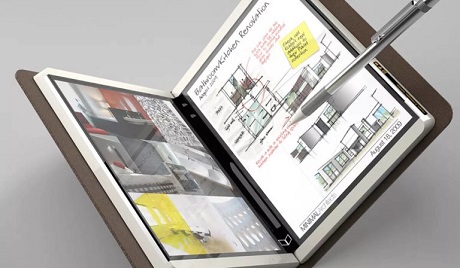The definition of computing is changing day by day. One of the earliest sections to adopt this change is the education market, where Microsoft had the dominance in the 90s and early 2000s. But after the introduction of Chromebook, education sectors have switched to it because of the low cost, easy to use, durable PCs which Microsoft and their OEMs do not have. As a result, we have seen that Microsoft is working on different types of devices in search of new usage scenarios for PCs to grab all the possible markets. Andromeda is an open secret now. But in recent leaks, a new device code-name is floating around- ‘Centaurus’. Unlike the pocketable Andromeda, this is a more tablet-like dual-screen device which may run on Windows Core OS, a lightweight, easy to use, flexible version of Windows operating system. This operating system is being made to compete with Chrome OS like lightweight operating systems. As the dual screen foldable computers are very expensive to produce, it will be a bit risky for the market. That’s why Microsoft is trying to make the technology less expensive and perfect to find an appropriate place for the new PC form factor by experimenting with different type of devices at once. Currently, Microsoft is very successful with touch, pen and e-ink enabled computing devices. Microsoft apps (like OneNote, Office apps etc) which support such technologies are very successful even in education sectors. Learn more on OUR FORUM.
